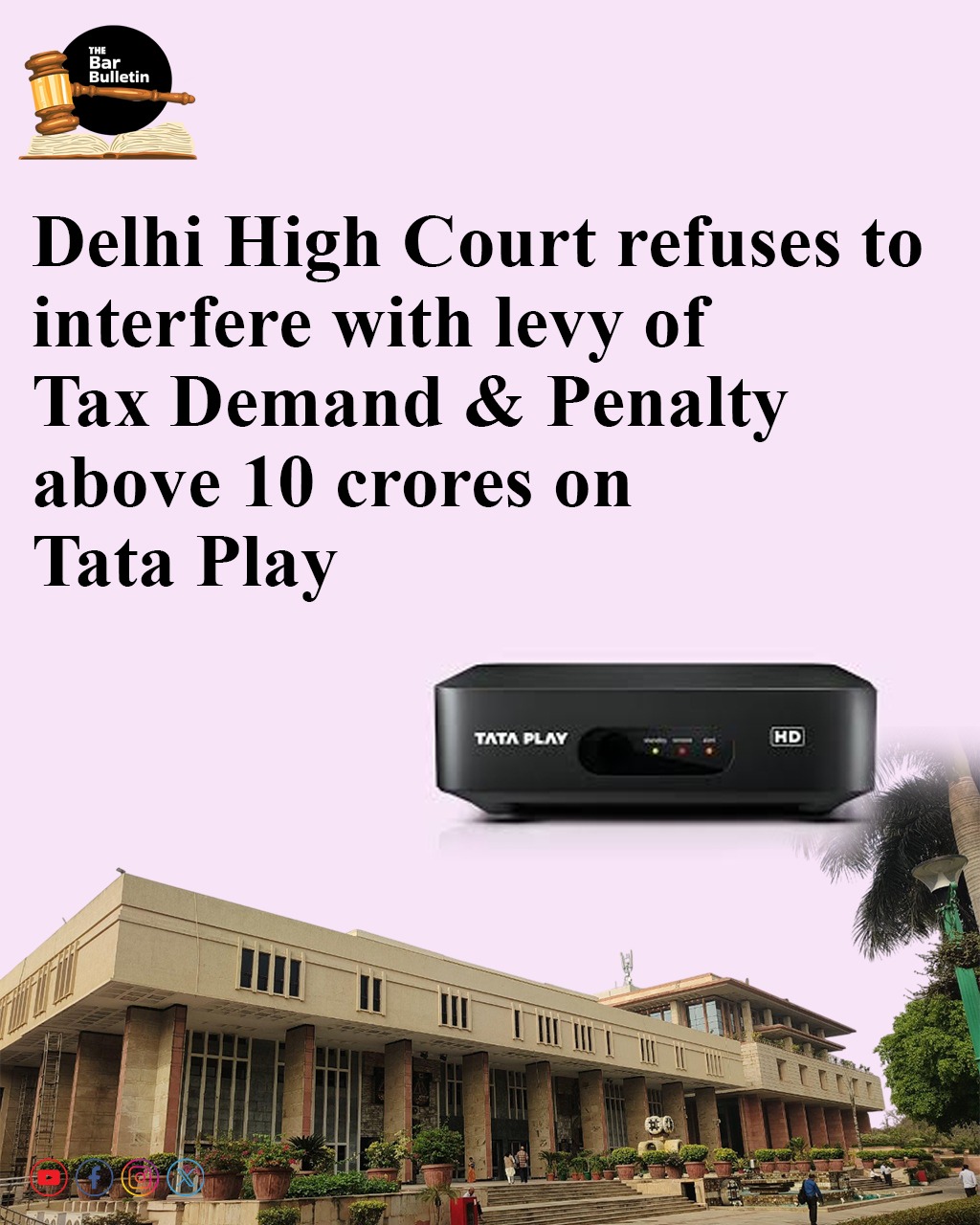While declining the relief sought by Tata Play (Petitioner), the Delhi High Court refused to quash the impugned SCN dated Nov 30, 2024 issued to the DTH broadcasting service provider, observing that said SCN is well within the stipulated time of three three months before the passing of the impugned order dated Feb 28, 2025, and hence, the impugned SCN and the impugned order, having been issued within the statutory limitations, are neither time barred nor issued without jurisdiction.
As far as limitation period for validity of SCN is concerned, the Court clarified that while the purpose behind Section 73(10) of the CGST Act is to fix the date by which an adjudication order has to be issued, the purpose of Section 73(2) of the CGST Act is to ensure that at least three months is available to the taxable person for filing a reply to the show cause notice issued to them and for being heard.
Since the last date for filing of returns in terms of Rule 80(1)(A) of the CGST Rules was extended till Feb 28, 2022, and the period u/s 73(10) of the CGST Act for issuance of the impugned order in the present case was to end on Feb 28, 2025, the Court emphasized that the SCN had to be issued at least three months before Feb 28, 2025.
As far as reliance placed by the Petitioner on Section 75(5) of the CGST Act to argue that a minimum of three opportunities of hearing ought to have been granted, the Division Bench comprising Justice Pratibha M. Singh and Justice Rajneesh Kumar Gupta observed that only upon sufficient cause being shown, an adjournment of a maximum of three hearings can be granted by the proper officer, and affording of the benefit of minimum of three adjournments is not the mandate of Section 75(5).
Briefly, the Petitioner engaged in the business of providing Direct-To-Home (DTH) broadcasting services, was issued a demand-cum-show cause notice on the ground of erroneously availing excess Input Tax Credit (ITC). After seeking an extension of 15 days, the Petitioner submitted the required documents to support their contentions against the demands raised in the SCN. Rejecting those submissions, the Petitioner was saddled with a demand of Rs. 5.63 crores as tax along with Rs. 4.22 crores towards interest and Rs. 56.35 lacs towards penalty.
When the validity of the said demand-cum-interest-cum-penalty raised by the Respondent-Department stands challenged before this High Court, Section 73 of the CGST Act was referred to state that whenever it appears to the ‘proper officer’ that any tax has not been paid or short paid or has been erroneously refunded or where ITC has been wrongly availed or utilized, a notice can be served on the person chargeable with such tax, at least three months prior to the outer limit prescribed for passing of an order u/s 73(10) of the CGST Act, requiring to show cause as to why he should not pay the amount specified in the notice along with interest payable thereon.
Accordingly, noting that the Petitioner was continuously seeking adjournments and then also failed to appear in person, the High Court dismissed the petition and refused to interfere with the demand and penalty order. However, considering the nature of the demand raised in the impugned order, the Court permitted the Petitioner to avail of the appellate remedy by Aug 31, 2025, along with the necessary pre-deposit mandated u/s 107 of the CGST Act, in which case the appeal shall be adjudicated on merits and shall not be dismissed on the ground of limitation.
Appearances:
Senior Advocate Gautam Narayan, a/w Advocates Anirudh Bakhru, Victor Das, Vipul Singha, and Anwesh Padhi, for the Petitioner
Advocate Vaishali Gupta, for the Respondent

